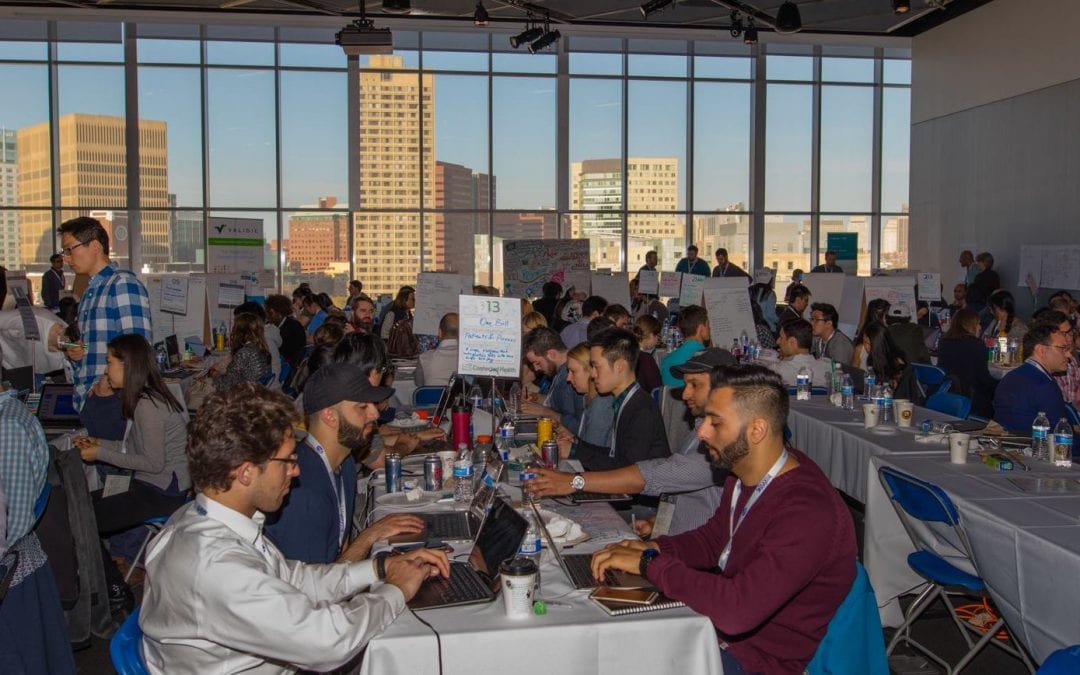MIT Hacking Medicine where PillPack co-founders TJ Parker and Elliot Cohen met.
The story of PillPack, the online prescription drug retailer acquired last week by Amazon for nearly $1billion, illustrates the power of a collaborative startup community and how it is contributing to a tech resurgence in Boston.
In December 2015 I received a message from Bill Aulet, managing director of the Martin Trust Center for Entrepreneurship at MIT: “Bill, can you help our friend Elliot Cohen?” Cohen, an MIT Sloan grad, is the Co-Founder and Chief Product Officer of PillPack.
At a breakfast meeting at the Crema Cafe, Cohen explained that a key member of the PillPack team was facing an immigration hurdle. They couldn’t afford to lose her because she was developing the backend pharmacy system that would let PillPack scale up its operations to accommodate more customers.
She was in Boston as a spouse of a visiting university scholar, and needed an H-1B visa to work for PillPack. PillPack would have had to submit a visa petition in the national lottery, wait six months and hope for success. The odds were only 33% since there weren’t enough visas available.
Cohen wanted to learn about the Global Entrepreneur in Residence Program, which is exempt from the visa quota by virtue of its affiliation with the University of Massachusetts. Aulet knew about the one year old program, championed by Jeff Bussgang of Flybridge Capital, because it had already saved several MIT grads from having to leave the country and pursue their entrepreneurial dreams elsewhere.
Cohen thought it was a helpful solution. “Really awesome what you guys are building over there. Let me know if I can help.” We worked with PillPack’s attorneys to file a cap-exempt H-1B petition, which was approved. While in residence at the University of Massachusetts, she contributed to making the Introduction to Software Engineering course more current and relevant to the real-world. PillPack eventually won its own visa for her independent of UMass.
Reacting to the excitement of the Amazon acquisition, PillPack’s VP for Engineering Matt Pokress told me: “Wouldn’t have been able to do it without this team – and she continues to be a huge contributor to our success.”
PillPack benefited from many connections like this in Boston. These include the TechStars program in Boston, run at the time by Katie Rae and Reed Sturtevant; being the startup-in-residency at IDEO, a design firm in Cambridge; and the Founder Collective’s David Frankel, which led the seed round in which Atlas Venture partner Fred Destin participated.
But the story begins with community builder Bill Aulet. After studying computer science and cognitive science at UC Berkeley, Cohen worked for Microsoft and several Internet startups until Aulet recruited him to run the Trust Center’s entrepreneur-in-residence program. He was the first entrepreneur-in-residence Aulet hired when he took over leadership at the center.
At MIT, Aulet connected Cohen with Zen Chu, a senior lecturer in health-care innovation at Sloan. Together they created Hacking Medicine, where Cohen and PillPack co-founder TJ Parker met. Parker was a Massachusetts College of Pharmacy and Health Sciences student whose parents ran a pharmacy in New Hampshire. Chu’s wife was Katie Rae, who ran Techstars in which PillPack later participated.
Cohen called the connection with Chu “really quite lucky.” But Chu says “good collisions happen here.”
Young entrepreneurs in Boston find themselves enveloped in an environment of collaboration, support and mentorship that is proving transformational, especially in healthcare. Thanks to entrepreneur leaders like those behind PillPack who have worked tirelessly for a decade building the support infrastructure.

